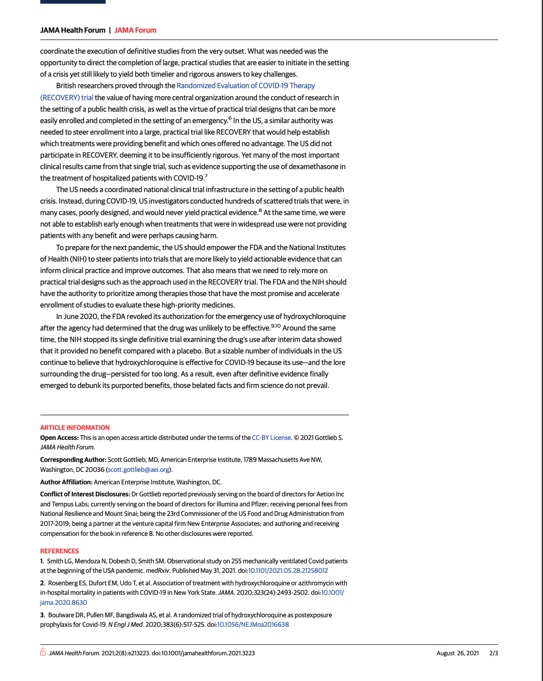
THREAD: My book, “Uncontrolled Spread,” debuts today. It aims to shed new light on systemic woes and mistakes that left U.S. excessively vulnerable to Covid and how we make sure this never happens again. I owe deep gratitude to many people who helped bring this book to completion 



I provide new details on what went wrong at the agency level to leave the U.S. excessively vulnerable to this threat, relate newly revealed stories, and offer a roadmap for how we can reform our systems to make sure that a future pandemic strain can never hit us this hard. 

I want to thank the more than 100 people I interviewed for this book; the many experts who read the manuscript; hundreds of reporters, scientists, researchers whose work I reference; and especially my former colleagues at FDA and HHS who provided key insights throughout my effort 



We must begin the hard discussion on how we make the globe less prone to these risks, and protect the most vulnerable. #UncontrolledSpread is an effort to start that conversation in earnest. I hope we can align on a shared set of principles that will leave us better protected. 

• • •
Missing some Tweet in this thread? You can try to
force a refresh









